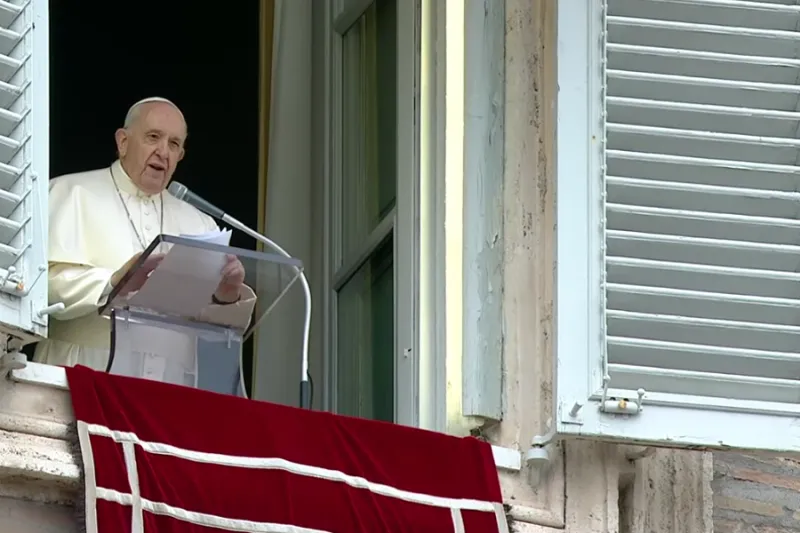
Rome, Italy, Dec 8, 2021 / 18:19 pm (CNA).
Pope Francis has encouraged young people suffering from addiction to take an honest look at their suffering, and courageously to invite Christ into their lives.
“Do not be afraid of reality— of the truth— of our miseries,” the pope said during a Dec. 8 visit to the Rome headquarters of the Cenacolo Community.
“Don’t be afraid, because Jesus likes reality as it is, not made up; the Lord doesn’t like people who make up their souls, who make up their hearts.”
The Cenacolo Community was founded in Italy in 1983 to support young people experiencing addiction or marginalization. The community has since expanded to include houses in nearly two dozen countries, including the United States.
The pope spent about two hours at the headquarters. He met with several families and young people involved in the community, and 25 brothers and sisters of the local Good Samaritan fraternity.
He watched a film on the life of St. Joseph that was produced by members of two fraternities in Medjugorje. He also blessed a chapel at the headquarters that was entirely constructed by recycled materials, to symbolize the renewal of life of each person in the Cenacle Community.
The pope listened to the stories of the young people present, and encouraged them to continue sharing their stories, in order to help others who may find themselves in similar situations.
“Have the courage to say: ‘I think that there is a better way’,” the pope said.
If you value the news and views Catholic World Report provides, please consider donating to support our efforts. Your contribution will help us continue to make CWR available to all readers worldwide for free, without a subscription. Thank you for your generosity!
Click here for more information on donating to CWR. Click here to sign up for our newsletter.




Leave a Reply